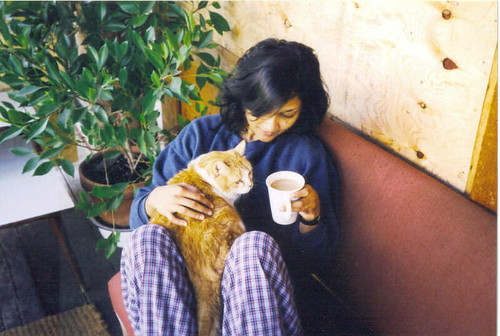The White Tiger by Aravind Adiga

The White Tiger
by Aravind Adiga
I was quite impressed by the Booker prize winning debut novel, The White Tiger by Aravind Adiga.
"If we were in India now, there would be servants standing in the corners of this room and I wouldn't notice them. That is what my society is like, that is what the divide is like.", says Adiga in an interview.
The novel portrays the brutally realistic, very-much-in-existence but easily-ignored side of India through the experiences of the narrator (whose voice, Adiga warns, should not be taken as his own).
Balram Halwai, who comes from the Darkness - i.e., the poor India, has seen a way out, even if it is probably morally and ethically disputable. Balram comes to the conclusion that he can either be eaten or be the eater. He chooses the latter. His successful attempt to flee the rooster coop as he calls it - a cage in which people tend to accept the indignities and believe they deserve nothing better and therefore never flee even if the cage is left open and unguarded - is what the novel unfolds.
It is cleverly written as a series of narrative episodes to Chinese Premier, Wen Jiabao, in which Balram presumes to explain the mechanics of becoming a successful entrepreneur (hustler) in modern India by navigating the muddy waters of politics, caste hierarchy and class divide.
"A handful of men in this country have trained the remaining 99.9% - as strong, as talented, as intelligent in every way - to exist in perpetual servitude."
Why did Adiga make Balram a chauffeur? "Because of the whole active-passive thing. The chauffeur is the servant but he is, at least while he's driving, in charge, so the whole relationship is subverted."
The outcry over this unglamorous presentation of corruption, bribery, servitude, cultural imperialism, the unbridgeable gap between the haves and the have-nots, and above-the-law rich who crush the poor without a second thought is to be expected. However, every once in a while, it is imperative to tell the tale of the poor India without derision or disdain. It is what it is, and glossing over it while presenting the 5-odd percent of the upper middle class who manage to shine overseas is not going to make it go away. In fact, bringing it to light is what could make it go away - when it awakens the sleeping White Tiger to break free...
Balram confesses to murdering his master Mr.Ashok, perhaps not for the reasons he tries to set up for the readers, but nevertheless, this crime as well as the crime of stealing his murdered master's money is what he sees as his salvation from the Darkness, his only hope to break out of servitude and get to the other side of the fence.
In Balram, Adiga has created a character who is hard to like, yet not easy to dislike despite the many ungainly things he manages to do. There is always a tug-of-war between the servile Balram and the aggressively autarchic Balram who knows that if he doesn't stand up for himself, no one else will. Ever.
What impressed me was the keen observations peppered incidentally in the book - the village school master pocketing government grants and denying basic education, the unmanned hospitals where the poor wait for days for a doctor to show up, the abject poverty into which many are born with no opportunity to do any better... No, it is not romantic and it is not exaggerated. There are remote parts of India, North and South, where such things still go on unchecked.
Rohinton Mistry, Kiran Desai and other contemporary writers have sculpted this genre of exposing the dark side of poverty without sensationalism, contempt or ridicule. Adiga manages to do the same with his debut novel.
Labels: book review, booker, fiction


0 Comments:
Post a Comment
<< Home